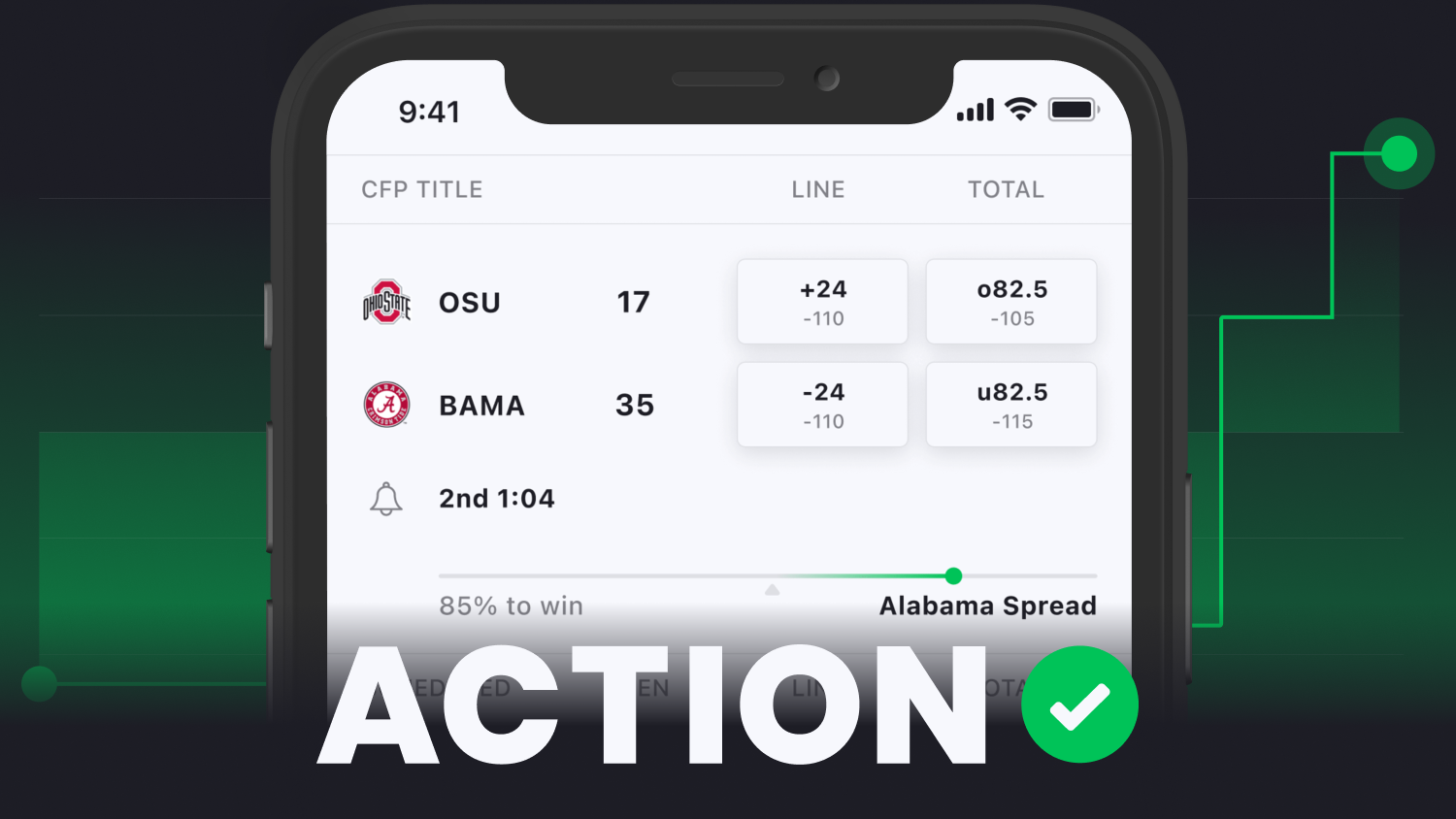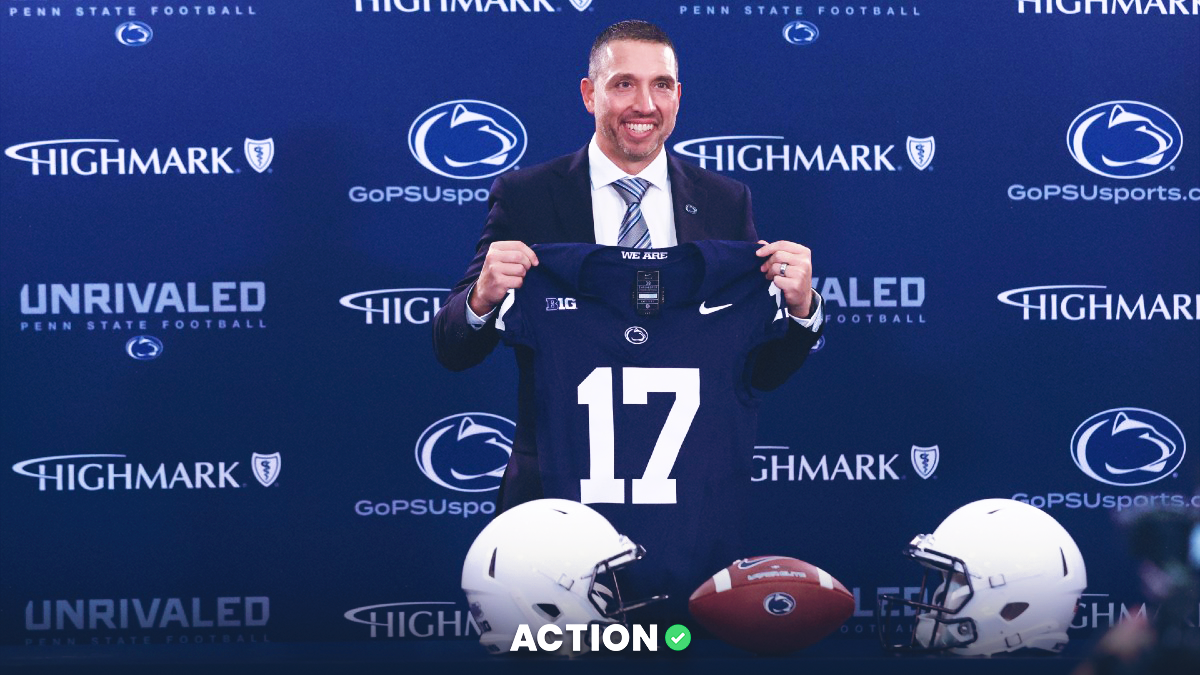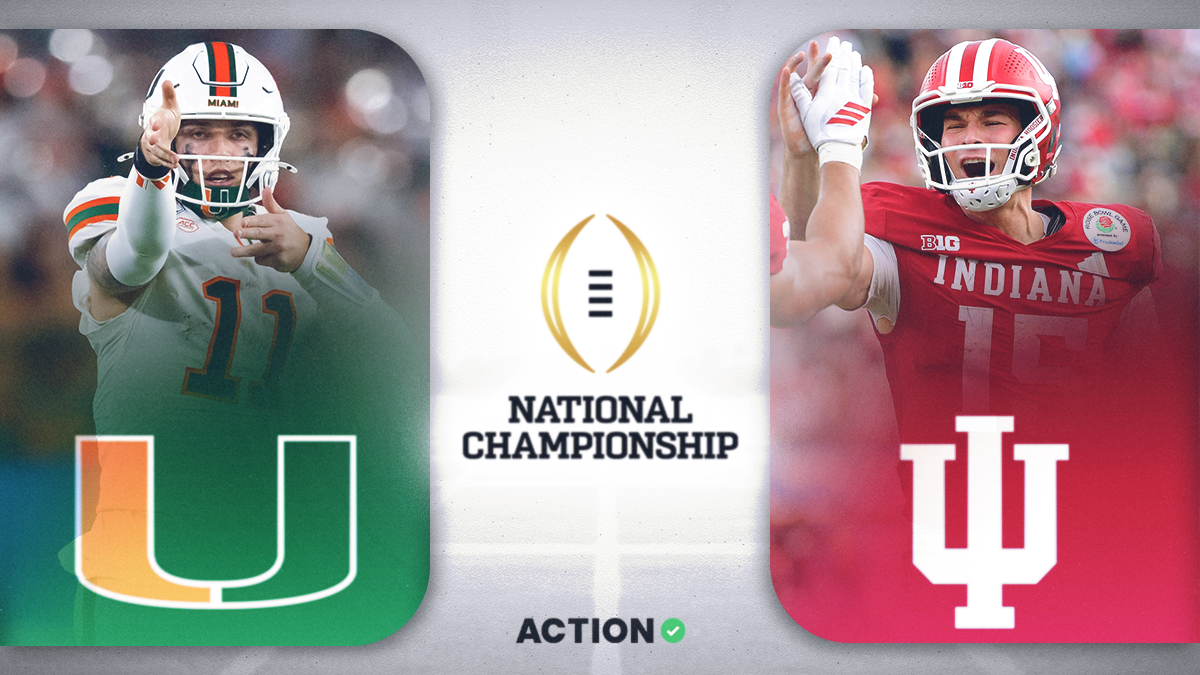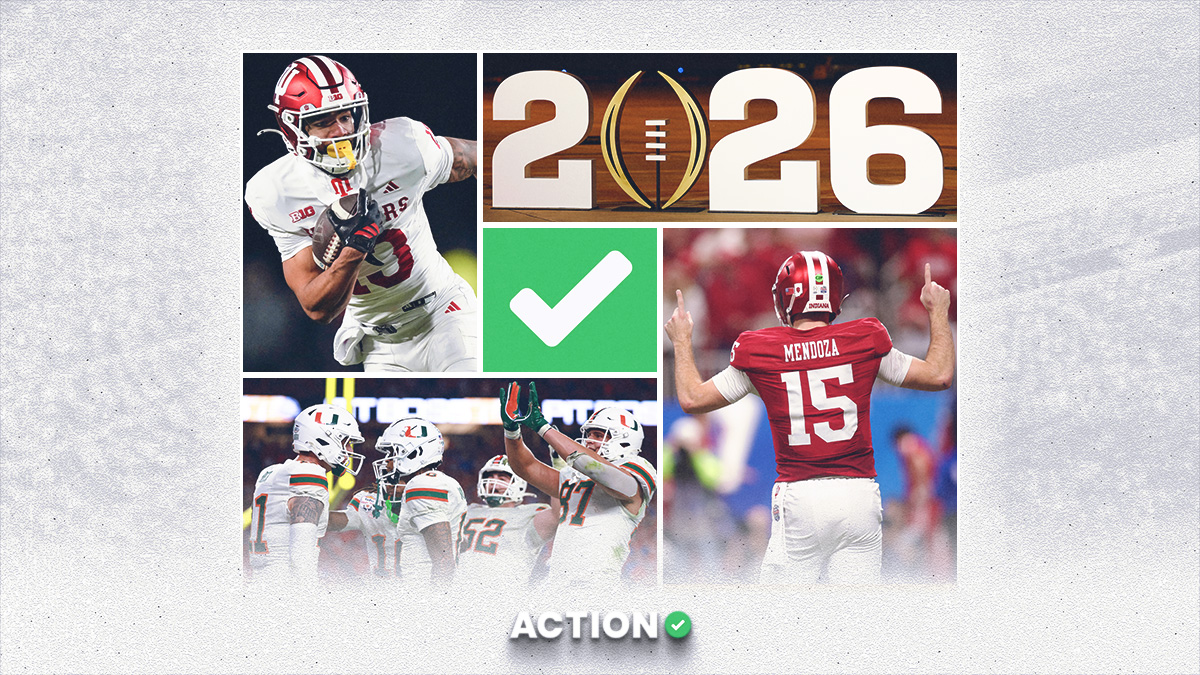- The over/under in the TCU vs. Georgia National Championship sits at 62, so plenty of points are expected.
- However, will there be enough offense to reach this total?
- BJ Cunningham breaks down his live betting strategy for TCU vs. Georgia below.
We have reached the final game of the college football season: the National Championship between preseason longshot TCU and one of the favorites Georgia, which is looking for back-to-back national titles.
If you're new to this piece, we'll take an in-depth look at the total for the national championship game using yards per play, Success Rate, Finishing Drives, plays per minute, seconds per play and more.
Now, let's dive into TCU vs. Georgia
TCU vs. Georgia
| TCU Odds | ||
|---|---|---|
| Spread | Total | Moneyline |
+13.5 -110 | 62 -110o / -110u | +360 |
| Georgia Odds | ||
|---|---|---|
| Spread | Total | Moneyline |
-13.5 -110 | 62 -110o / -110u | -480 |
For TCU to have a chance in this game, it needs to put together the same script Ohio State did. The reason the Buckeyes were so successful against Georgia is that they kept a clean pocket for quarterback CJ Stroud.
Although Stroud was under pressure on 43.2% of his dropbacks, he picked Georgia apart when the pocket was clean, going 18-of-23 for 12.2 yards per attempt to go along with a 92.6 PFF passing grade.
Georgia also blitzed on 50% of Ohio State's passing plays, and since Stroud was afforded time to throw, he went long and torched a Georgia secondary that wasn't used to having to cover for that long.
CJ Stroud vs. Georgia
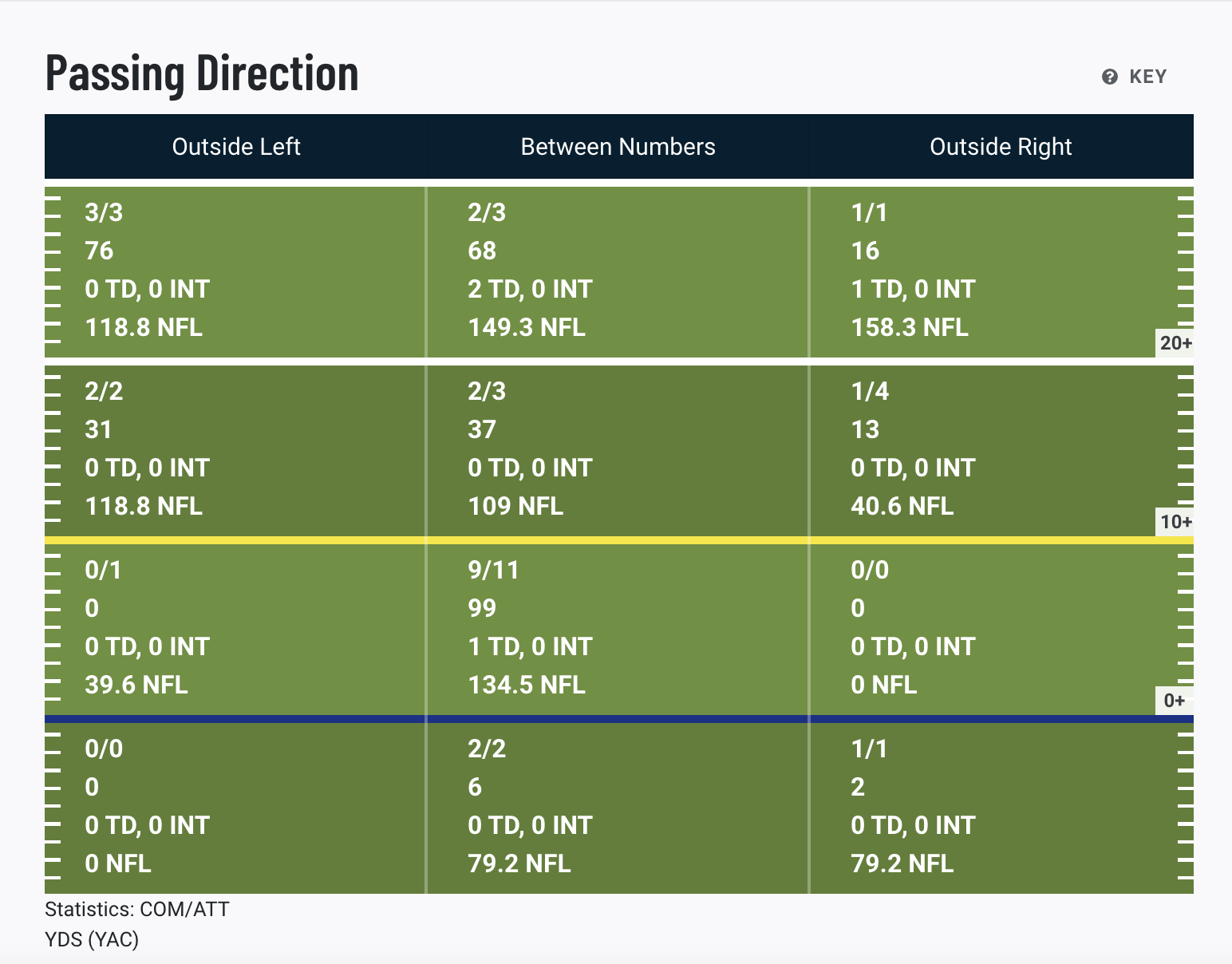 |
Photo Credit: PFF
Both Kelee Ringo and Kamari Lassiter were very poor against Ohio State, but Ringo played well in one-on-one coverage against Marvin Harrison Jr., so TCU's Quentin Johnston could have a long night.
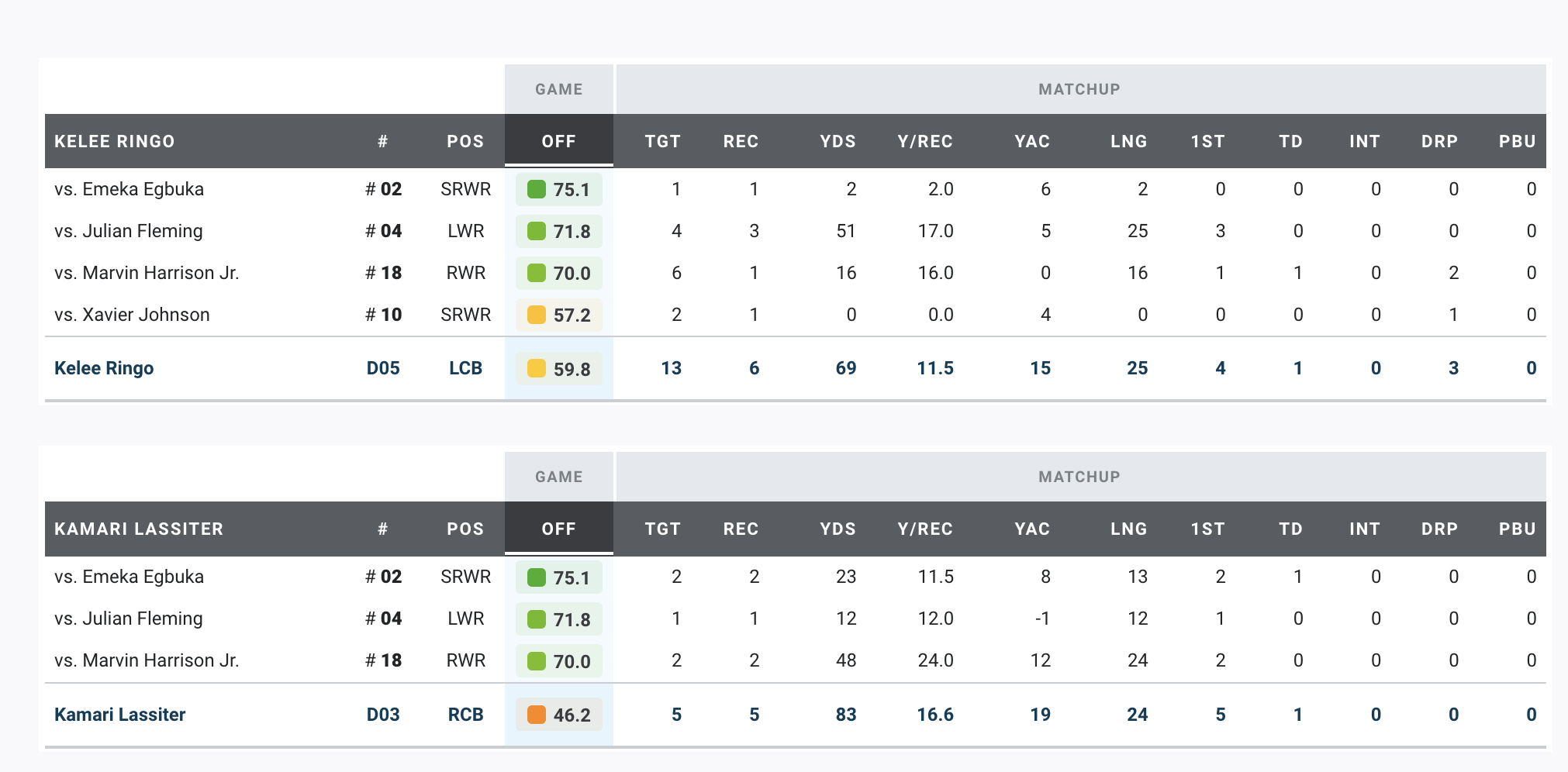 |
Photo Credit: PFF
The question for Georgia defensively is whether or not it can pressure Max Duggan enough so its secondary doesn't get exposed.
Duggan was pressured on 32.4% of his dropbacks this season, and there's a big difference when Duggan is under duress versus when he has a clean pocket. When Duggan has a clean pocket, his PFF passing grade sits at 90.3 with an 80.1% adjusted completion percentage. When he's under pressure, though, his PFF passing grade drops to 52.3, while his adjusted completion percentage falls to 56.8%.
However, if TCU is going to take the same approach as Ohio State and try to throw deep against Georgia, Duggan is well-equipped to do that. His PFF passing grade on throws of 20 yards or more comes in at 92.9.
However, Duggan really wasn't great at throwing deep against Michigan, going 4-of-13 for 112 yards on throws over 10 yards.
TCU is a solid rushing team and put up over six yards per carry against Michigan. However, its offense is built on explosive plays. The Horned Frogs rank fifth overall in the country in explosiveness but just 54th in Success Rate.
Against Michigan, Emari Demercado ran for 150 yards on 17 carries, but he was aided by a 69-yard run. Georgia held Ohio State's running backs to just 79 yards on 18 carries and sits third in the country in EPA/Rush Allowed and Defensive Line Yards.
Another big element of this game is going to be Duggan's ability to get out of the pocket and run. Stroud, who is not typically a big runner, had a few big runs against Georgia.
However, when the Dawgs faced LSU's Jayden Daniels in the SEC Championship, they held him to -6 rushing yards. When they faced Tennessee's Hendon Hooker, they held him to just 17 yards on 18 carries. So, I'd imagine Kirby Smart will devise a game plan to stop Duggan from beating them with his legs.
What's interesting about Georgia's defense is it's been exposed the last two games against LSU and Ohio State. If you take the previous 12 games before that, Georgia allowed only 4.5 yards per play. However, they've allowed a whopping 71 points and 7.4 yards per play in the last two games.
What is comes down to is what I already mentioned — can Georgia put pressure on Duggan? Daniels and Garrett Nussmeier were under pressure on 35% of their dropbacks in the SEC Championship, so Georgia is going to have to increase that percentage against TCU if it wants to limit the explosive plays.
Stetson Bennett had a pretty average game throwing the ball against Ohio State. He averaged 11.7 yards per attempt but had two turnover-worthy plays, and his PFF passing grade came in at only 69.6.
TCU does have a major weakness in the secondary and in explosive passing allowed, where it enters at 124th in the nation. However, Bennett went just 9-of-17 for 220 yards on throws over 10 yards against Ohio State, not counting the 76-yard touchdown where the defender fell down.
JJ McCarthy was really effective in throwing the ball deep against TCU, especially between the numbers. That's something Bennett has been very successful at this season, boasting a PFF passing grade of 90 and 14 big-time throws on throws 10 yards or longer between the numbers.
JJ McCarthy vs. TCU
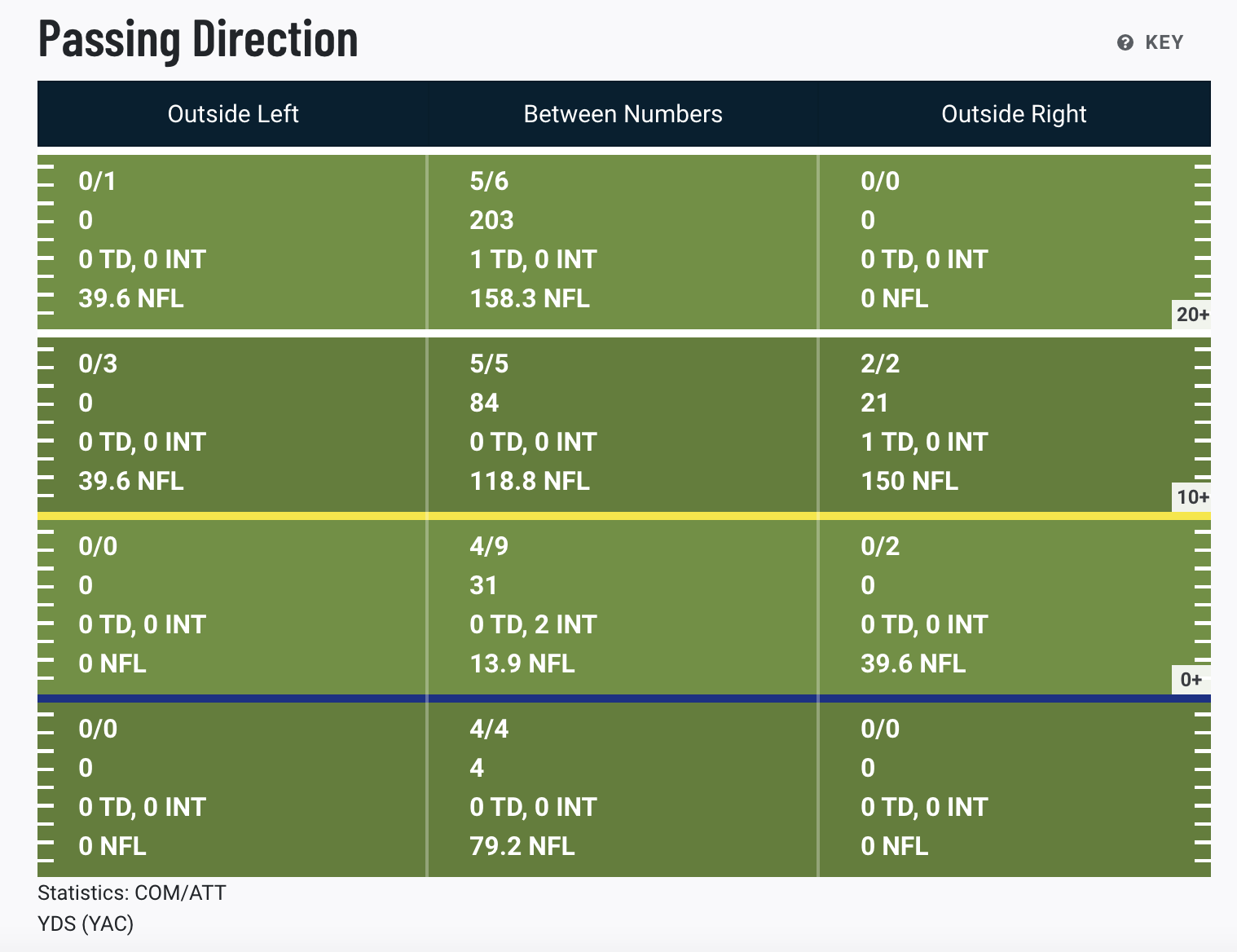 |
Photo Credit: PFF
Georgia had to somewhat abandon the running game that has become a staple of its offense against Ohio State. The Bulldogs handed the ball off to their running backs just five times in the second half, which is not normal for an offense that's used to playing with a lead and runs the ball 52.8% of the time.
Georgia does have two incredible running backs that can give TCU's front seven a lot of trouble. Kenny McIntosh and Daijun Edwards are both averaging 5.5 yards per carry, have PFF rushing grades over 82.0 and have combined for 44 runs of at least 10 yards.
TCU's defense sits right around the national average in yards per attempt allowed at 4.2 yards per carry. It also finished 84th in Rushing Success Rate Allowed and 90th in EPA/Rush Allowed.
Michigan's Donovan Edwards ran the ball for 119 yards on 23 carries, while McCarthy averaged 5.2 yards per carry as well. So, if Georgia commits to the run, it should find some of the success it had in the first half against Ohio State.
The biggest thing for the pace of this game is going to be the game state.
Michigan was an incredibly slow-paced team heading into the game against TCU, but it trailed by multiple scores early and had to play at the Horned Frogs' tempo, which caused the game to get out of control.
TCU ranks 88th in seconds per play at 25.9 for the season, so Sonny Dykes clearly knew he had to pick up the tempo to cause a disruption for Michigan's defense.
The flip side is Georgia plays at an ultra-slow pace of 28.1 seconds per play, which ranks 116th in the country. The game I keep going back to that's similar to this situation is the Bulldogs' matchup against Tennessee. Georgia went up early in that game, and its defense controlled the game, and ultimately, the pace.
Only 10 total points were scored in the second half after Georgia took a 24-6 halftime lead. The same thing could happen here if the Bulldogs pull ahead early.
I have 59.8 points projected for this game, so I'm passing on betting the total pregame. However, I'll be looking to play a live under around halftime if Georgia has a double-digit lead.
So, make sure to follow me in the Action Network App to get an alert if I do decide to play the under
Pick: Live Under if Georgia Has Double-Digit Lead





